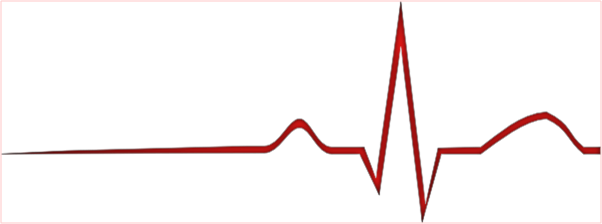Regular listeners to Healthy Matters know that I often can’t get to all the questions that come from listeners via phone or text message, or I can’t answer the questions as thoroughly as I’d like wh en doing live radio. So every so often I’m going to use this blog to post a few “quick tips” in response to listener questions. Nothing in-depth, just a few tips I think are interesting.
en doing live radio. So every so often I’m going to use this blog to post a few “quick tips” in response to listener questions. Nothing in-depth, just a few tips I think are interesting.
And you can always listen to old shows by clicking the “Listen to podcasts” link in upper right of this blog.
Remember, these are just quick tips and are not complete medical advice. Be sure to click the link in each section for more information!
These are from the Sunday, February 7 show.
Angina pectoris
One texter this morning asked about angina – what is it, does it mean there is heart disease, and what to do about it.
Angina pectoris is a mix of Greek (“strangling”) and Latin (“chest”) and is the term we use to describe pain in your chest which is due to coronary heart disease. This is the blockage of your coronary arteries by plaque that some of us know as “hardening” of the arteries. Coronary  heart disease also leads to heart attacks – an unstable, emergency situation, but angina is the stable condition that comes when your heart isn’t getting enough blood to meet the demands being asked of it. In other words, the heart is doing fine when at rest, but doesn’t have the reserve required for exertion or stress.
heart disease also leads to heart attacks – an unstable, emergency situation, but angina is the stable condition that comes when your heart isn’t getting enough blood to meet the demands being asked of it. In other words, the heart is doing fine when at rest, but doesn’t have the reserve required for exertion or stress.
- Angina occurs with exertion, stress, and hot or cold temperatures and is relieved with rest or nitroglycerin.
- It usually feels like a pressure or squeezing in the chest (hence the name which means “strangling”).
- There are lots of variations in symptoms, particularly in women, and may also feel like nausea, indigestion, or include arm, neck, and jaw pain.
- Angina usually lasts just a few minutes.
- Symptoms are usually predictable – not coming out of the blue at unexpected times. Onset with exertion/stress, relief with rest/medications.
If you think you may be having angina, then you should be seen by your doctor for tests. There are good medications and other treatments for angina. Importantly, if the symptoms are becoming more frequent or severe, or occur at rest, then you may have unstable angina which requires urgent attention. Like right now attention, not tomorrow or next week.
For more, check out the reliable American Heart Association site.
Bronchitis
It’s cold and flu season and lots of radio listeners have been asking about bronchitis.
Main message: bronchitis (as well as tracheobronchitis, rhinitis, and most sinusitis) are viral conditions, generally grouped under the catch-all groups of “upper respiratory infections” or URIs. Compare this to a lower respiratory infection, like pneumonia, which is a different condition and is treated with antibiotics.
Upper respiratory infections are:
- Viral in origin, not bacterial, in the vast majority of cases.
- Not caused by cold weather (sorry, grandma, not going to catch a cold by going without my hat!).
- Are more common in winter probably due to the ability of viruses to thrive in cold and dry air, and also maybe because people tend to be indoors together more often.
- Are not treated with antibiotics. There is no benefit whatsoever in treating a viral illness with an anti-bacterial drug, and there are many harmful effects.
- Over-the-counter remedies may help symptoms (aches, cough, congestion) but will not shorten the duration of your URI.
I found this summary by the American Academy of Family Physicians helpful for how to approach URIs.
The many medications for acid reflux
Didn’t have time this morning to answer this question from a Healthy Matters listener who texted me:
“Trying to stop taking lansoprazole after 3 years . . . side effects became intolerable . . . could you discuss proton pump inhibitor vs H2 inhibitor or Tums”
Good question!
PPI basics:
- PPIs block the production of acid by cutting off the “acid pumps” at the source – and are used to treat acid reflux and in some cases, ulcers. They are the most potent medications for reducing acid.
- There are many more-or-less similar PPIs – esomeprazole, omeprazole, lansoprazole, pantoprazole, and rabeprazole. Most are now available over-the-counter.
- Side effects are generally mild but include diarrhea, fatigue, dizziness, headache, nausea, and abdominal pain.
- There is relatively little that is known about long-term use of PPIs since most of the medical studies only looked at shorter-term use. Some potential harms of long-term use are possibly greater susceptibility to Clostridium difficile (a potentially severe intestinal infection), greater risk of osteoporosis-related fractures, and low levels of magnesium. Less convincing but possible is lower absorption of vitamin B12, calcium, and iron.
- Take the smallest dose for the shortest time possible.
- For people with diagnosed gastroesophageal reflux disease (GERD), the benefit of long-term PPI use generally outweighs the small adverse effects.
- However, many people take PPIs for less compelling reasons. Sometimes they tried them (or a doctor started them) just as a trial to see if they worked and for some reason, they just never stopped. Don’t take any medication for months or years without a specific diagnosis. Make sure you actually have reflux disease!
- If you do not have GERD, it is reasonable to cut back your PPI dose or stop it altogether and see how you do. If you have truly diagnosed reflux disease then you likely should be on a PPI indefinitely.
- Here is a good article from a respected source about PPIs.
So what about H2-blockers?
- H2-antagonists also block acid production in the stomach, but do so by blocking a type of histamine receptor in the stomach lining.
- They are general less potent, faster-acting, and shorter-lasting than PPIs.
- More-or-less similar types of H2-blockers are cimetidine, ranitidine, and famotidine.
- May be a good alternative for mild acid indigestion symptoms, but will likely be less effective than PPIs for GERD (true reflux disease).
Lastly, the antacids:
- Antacids containing aluminum (Maalox, Mylanta) or calcium (Rolaids, Tums) don’t shut down acid-production. They simply provide a chemical reaction with the existing juices in your stomach to neutralize the acid.
- A good analogy – antacids are to stomach acid like breath mints are to bad breath. They help quickly but only temporarily. They don’t solve the underlying problem.
- Best used for quick and easy relief of occasional heartburn.
Three items from the unanswered (or inadequately answered) mail bag at Healthy Matters. Hope you learned a tidbit or two!
